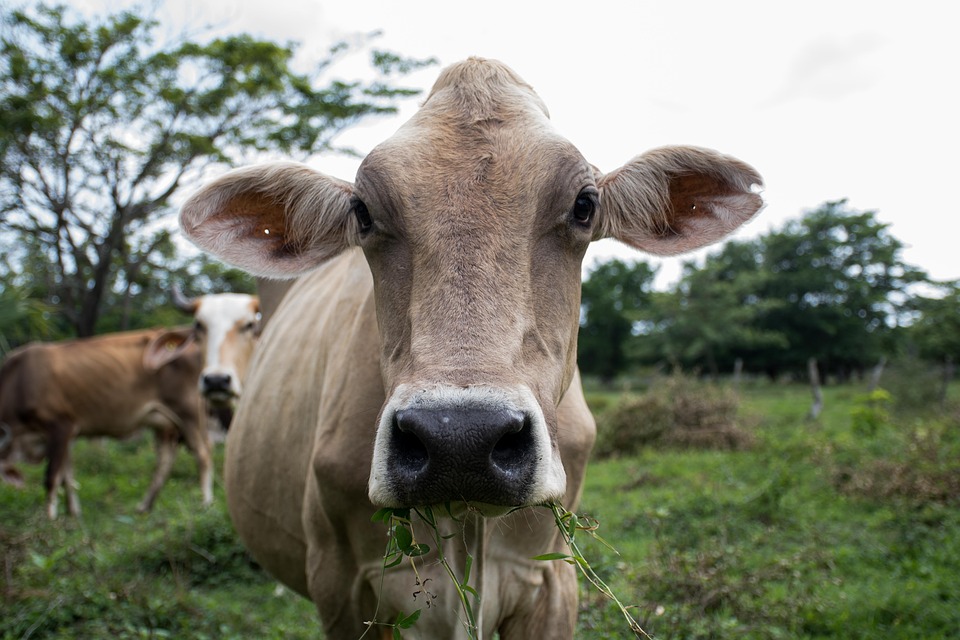By Tom Dolloff, USM Eco-rep
I have been a vegetarian for six years. My decision did not stem from health concerns, animal ethics, or flavor preference but rather the impact that meat consumption has on the environment. Eating meat is rooted both in human evolution and culture. However, the modern meat industry has created a system that is unnatural, inhumane and destructive to Earth’s natural resources.
Meat production is simply inefficient. No system is 100 percent efficient in converting one type of energy to another and this is certainly the case with meat. Keeping livestock uses both food and water, both of which could be used to supply people instead of the animals we choose to eat. A concept known as feed conversion ratios (FCR) better explains the inefficiency of livestock production. The FCR is the ratio of pounds of feed (corn and grain) needed to produce a pound of meat. Beef is one of the worst offenders with an FCR around 6 whereas pork is at about 4.5 and poultry are at 1.6, so for every pound of beef produced 6 pounds of feed is consumed.
The average American eats 57 pounds of beef in a single year. This equates to 342 pounds of grain and corn that is needed to feed the amount of beef that one person consumes. This is problematic because as more people switch over to western diets with more meat, especially red meat, land use will become a more serious issue.
According to the UN Food and Agriculture Organization, approximately 50 percent of all habitable land on Earth is used for agriculture, and 77 percent of that land is used for livestock for both grazing and feed. This means that 38.5 percent of all habitable land on Earth is used for livestock production and that share will only increase with a growing global population and increased adaptation of western diets. We are already seeing the environmental effects of these trends today. Deforestation has been a growing global problem for decades and agriculture is responsible for about 80 percent of it according to the Wageningen University and Research Centre.
Another case study looking at deforestation in tropical regions found that beef was responsible for about 5.2 million acres in 2011 alone, an area larger than Massachusetts.
Meat consumption also contributes to the most severe environmental crisis of our era: global climate change. According to the Food and Agriculture Organization of the United Nations, the energy needed to house, heat, cool, ventilate, light and move billions of animals contributes to 14.5 percent of total global greenhouse gas emissions.
Livestock, namely beef, and pork, also generate roughly 27 percent of global methane emissions which are about 35 times more potent than carbon dioxide in warming effects. While the current rate of degradation is roughly equivalent to emissions it will change as global meat consumption is expected to grow significantly with population and preference shifts; meaning, more methane will affect our climate.
Choosing to eat meat is a personal decision and has always been the status quo. But in an increasingly global economy, our decisions have an impact far beyond ourselves. I personally made the switch in one day after watching a video Steve-o (a vegan) did on factory farming. I found it was relatively easy to adjust as you can find vegetarian alternatives at any local supermarket and there are tons of resources online as it’s a pretty trendy topic.

